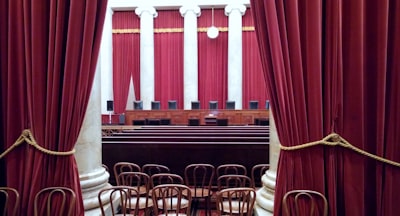Recent denials by Emil Bove, a former federal prosecutor, regarding any suggestion that the Justice Department should ignore court orders in deportation cases, underscore a flashpoint in the U.S. legal landscape: the tension between judicial authority and executive branch discretion.
Why the Denial Matters
At first glance, Bove's denial may seem procedural or political. But underlying it is a fundamental question: Can any branch of government, especially the executive, disregard court mandates? This cuts to the heart of constitutional checks and balances. Courts depend on the executive to enforce their orders; undermining this relationship—even by implication—threatens the fabric of American democracy.
Key Controversies & Societal Relevance
Deportation cases are not merely technical matters. They are often a life-or-death issue for affected individuals, carrying enormous moral and social weight. When there are accusations (even unfounded) that the government might flout judicial directives, trust in the system erodes for immigrants and citizens alike.
| Executive Power (Pros / Cons) | Judicial Oversight (Pros / Cons) |
|---|---|
| Flexibility in urgent or sensitive cases (+) | Ensures due process and legal uniformity (+) |
| Risk of overreach and diminished accountability (–) | Potential for slow, bureaucratic response (–) |
The Bove episode also spotlights how high-profile lawyers and public officials can shape the narrative simply by their statements—or denials. For immigrant advocacy groups, even the perception of official willingness to bypass court orders can chill trust and cooperation, while some hardline voices might see such action as a means to more aggressive enforcement.
Broader Trends & Takeaways
This episode fits within wider debates about the limits of executive power, particularly concerning immigration. It also highlights the enduring importance of public accountability and transparency. Americans are increasingly aware that the rule of law is not just about statutes, but about respecting the processes that keep government power in check.
Ultimately, Bove's statement reflects not just legal strategy, but the broader, high-stakes chess game over how far the executive can—or should—go in the name of policy.
This article was inspired by the headline: 'Emil Bove Denies Suggesting Justice Dept. Ignore Court Orders in Deportation Cases - The New York Times'.

Comments
No comments yet. Be the first to comment!